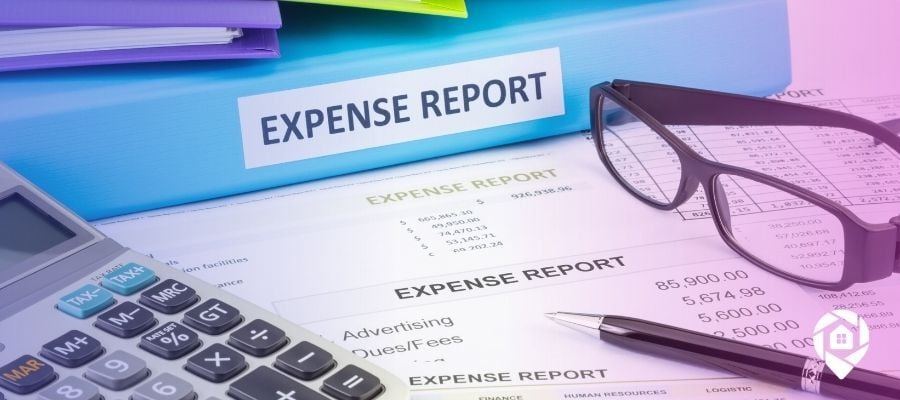
Master Real Estate Operating Expenses in Rental Homes

If you're getting started with real estate investing or managing a rental property, one of the most important things to understand is real estate operating expenses. These are the costs it takes to run and maintain a property. Knowing these numbers helps you plan your budget, avoid surprises, and make smart choices.
At first, it might feel a little confusing, especially if you’re new to real estate. But don’t worry. This guide will walk you through the basics in a simple way. By the end, you’ll understand what real estate operating expenses are, how they work, and why they matter for your rental business.
The Basics of Operating Expenses in Real Estate
So, what exactly are operating expenses in real estate? These are the regular costs you need to pay to keep your property running smoothly.
Think of them as the bills that come with owning a rental, even if no one is living there at the moment. These are different from loan payments or big upgrades. Operating expenses are more about the everyday things that help keep the property safe, clean, and ready for tenants.
If you're not aware of these costs, you could end up losing money without even realizing it. For example, forgetting to plan for these expenses might mean you're charging too little rent or spending more than you're making. This can hurt your profits and make it harder to grow your real estate business.
Whether you own a single rental home or several units, tracking your real estate operating expenses is one of the smartest things you can do. It helps you see where your money is going and shows you how to make better financial choices. Once you understand the basics, managing a rental property becomes a lot less stressful.
Common Operating Expenses for a Rental Property
If you're wondering what operating expenses for a rental property usually include, you’re not alone. Many new landlords are surprised by how many small costs can add up. Knowing what to expect will help you plan your budget and avoid unexpected bills.
Here are some of the most common rental property operating expenses:
- Maintenance and Repairs: Things break or wear out over time. You might need to fix a leaky faucet, replace a broken window, or hire someone to mow the lawn. Taking care of small issues early can help prevent bigger problems later.
- Property Taxes: Every year, landlords must pay taxes on the property. These amounts depend on the location and value of the home.
- Insurance: Landlords usually need special insurance to protect their rental properties. This might include regular homeowner’s insurance, flood insurance, or extra coverage, depending on the area.
- Utilities: In some cases, landlords pay for water, electricity, gas, or trash pickup. This depends on the rental agreement you have with your tenants.
- Property Management Fees: If you hire a property manager, you’ll need to pay them to take care of the day-to-day work. This might include collecting rent, handling repairs, or talking to tenants.
These are just the basics. Depending on your property, you might have a few other costs too. For example, some landlords pay for lawn care, pest control, or security services. All of these count as operating expenses for a rental property, and it’s smart to track them all in one place.
How to Calculate Rental Property Operating Expenses
Now that you know what these costs include, let’s look at how to calculate operating expenses for a rental property. The good news is that it’s not too hard.
Start by writing down all the regular costs that come with running your property. This includes things like:
- Insurance
- Property taxes
- Repairs and maintenance
- Utilities (if you pay them)
- Property management fees
- Any other services you pay for regularly
Once you have your list, add up the total amount you spend each month. For example, let’s say:
- Insurance is $100
- Taxes are $200
- Maintenance costs are $150
That means your operating expenses for the rental property total $450 per month. If you want to know your yearly cost, just multiply that number by 12.
Keep in mind, not every cost shows up every month. Some, like pest control or big repairs, might only happen once or twice a year. It’s a good idea to estimate these and include them in your yearly budget so you’re not caught off guard.
When you know how to calculate operating expenses, you can figure out how much it really costs to own and manage your property. This helps you set the right rent, stay profitable, and plan for the future.
Why Tracking Operating Expenses Matters
Keeping track of your operating expenses for your rental property is a smart habit. It helps you see how much money you’re really spending, so you can make better decisions.
When you know your costs, you can:
- Set the right rent to cover your expenses
- Find ways to save money
- Prepare for tax time with clear records
- Spot problems like rising bills or wasted resources
Even if you only own one property, tracking expenses can protect your profits and help you grow your business the right way.
Tips to Reduce Operating Expenses
While you can’t avoid all costs, there are smart ways to lower your rental property operating expenses. Here are a few ideas:
- Do Regular Maintenance: Fixing small problems early helps avoid bigger, more expensive repairs later.
- Compare Insurance Plans: Shop around and see if you can get the same coverage for less. Some companies offer discounts if you bundle plans or have safety features in place.
- Use Energy-Saving Products: Items like LED light bulbs, low-flow showerheads, or smart thermostats can lower your utility bills over time.
- Hire Help Only When Needed: If you can handle simple tasks yourself, like lawn care or changing filters, you can save money on labor.
These simple steps can make a big difference in how much you spend each month — and how much you keep as profit.
Conclusion
Understanding your real estate operating expenses is one of the best ways to protect your rental income. When you know what you're spending and how to manage those costs, you can plan better, earn more, and avoid surprises.
By tracking your expenses, finding ways to save, and staying organized, you'll set yourself up for long-term success in real estate.
Frequently Asked Questions about Real Estate Operating Expenses
1. What counts as operating expenses for a rental property?
Operating expenses include any regular cost needed to keep your property running. This covers things like repairs, insurance, taxes, utilities (if you pay them), lawn care, and management fees. It does not include mortgage payments or major upgrades.
2. How can I plan for unexpected expenses?
Set aside a small amount each month in a separate “maintenance fund.” This helps cover surprise repairs or yearly costs like roof checks or pest control. Planning ahead makes your rental property operating expenses easier to handle.
3. Are real estate operating expenses tax-deductible?
Yes, some operating expenses in real estate can be written off at tax time. Keep receipts and records of all your property-related spending. Talk to a tax professional to make sure you're getting every deduction you qualify for, including potential for rental property depreciation.
4. What’s a good percentage of rent to spend on operating expenses?
A common rule is to expect about 30% to 50% of your rental income to go toward operating costs. This can vary by location and property type, so tracking your actual numbers is key.
5. Can managing my property myself lower expenses?
Yes, handling things like rent collection, small repairs, or tenant communication yourself can reduce operating expenses rental property owners often face. Just make sure you have the time, tools, and knowledge to do it well.

About Samantha Ankney
Samantha is the Social Media Manager at DealMachine, where she oversees all social media strategies and content creation. With 4 years of experience at the company, she originally joined as a Media Specialist, leveraging her skills to enhance DealMachine's digital presence. Passionate about connecting with the community and driving engagement, Samantha is dedicated to sharing valuable insights and updates across all platforms.



